What do home loans, classical music, and campus ministries have in common? Data. Modern society is swimming in a sea of data. But to catch the big insights we need skills not commonly taught. This is why ARISE initiated the Kansas Data Science Consortium (KDSC).
On April 29 KDSC held its first regional conference in Lawrence, drawing nearly 100 attendees for talks, training sessions and digital posters about data science class projects.
The class projects were the work of 85 students enrolled in Community Data Labs, a new course pilotted spring 2023 at Wichita State University, Kansas State University, and the University of Kansas. Data shared from 17 partner organizations formed the basis of 20 different class projects.
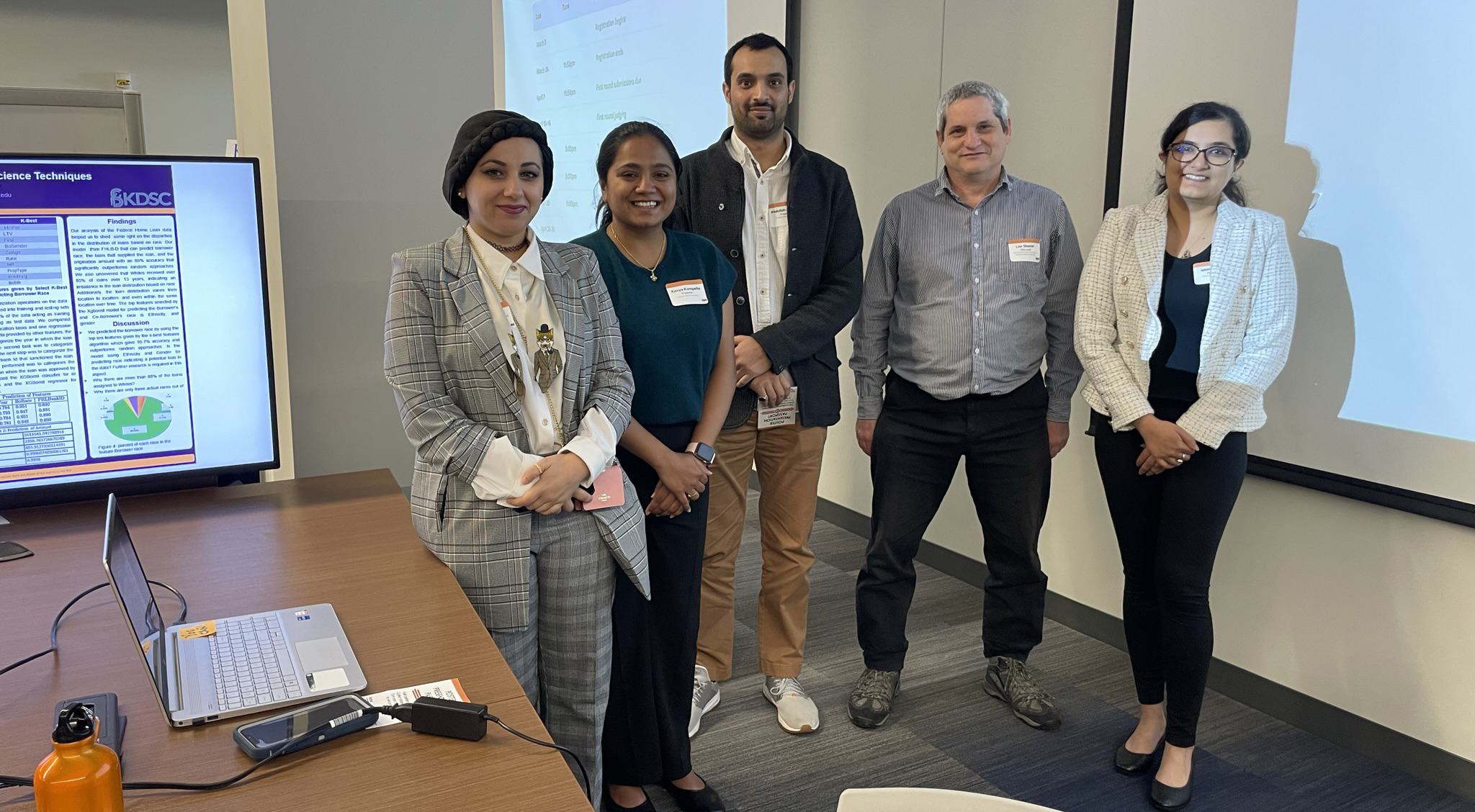
Standing next to a digital poster, this group from K-State includes Research Associate Safia Malallah (left) with students Kavya Kompella, Abdullah Alaklabi, and Ishitaa Sayal (right). Lior Shamir, professor of computer science (second from right) co-taught the Community Data Lab course with Dr. Malallah at K-State this spring.
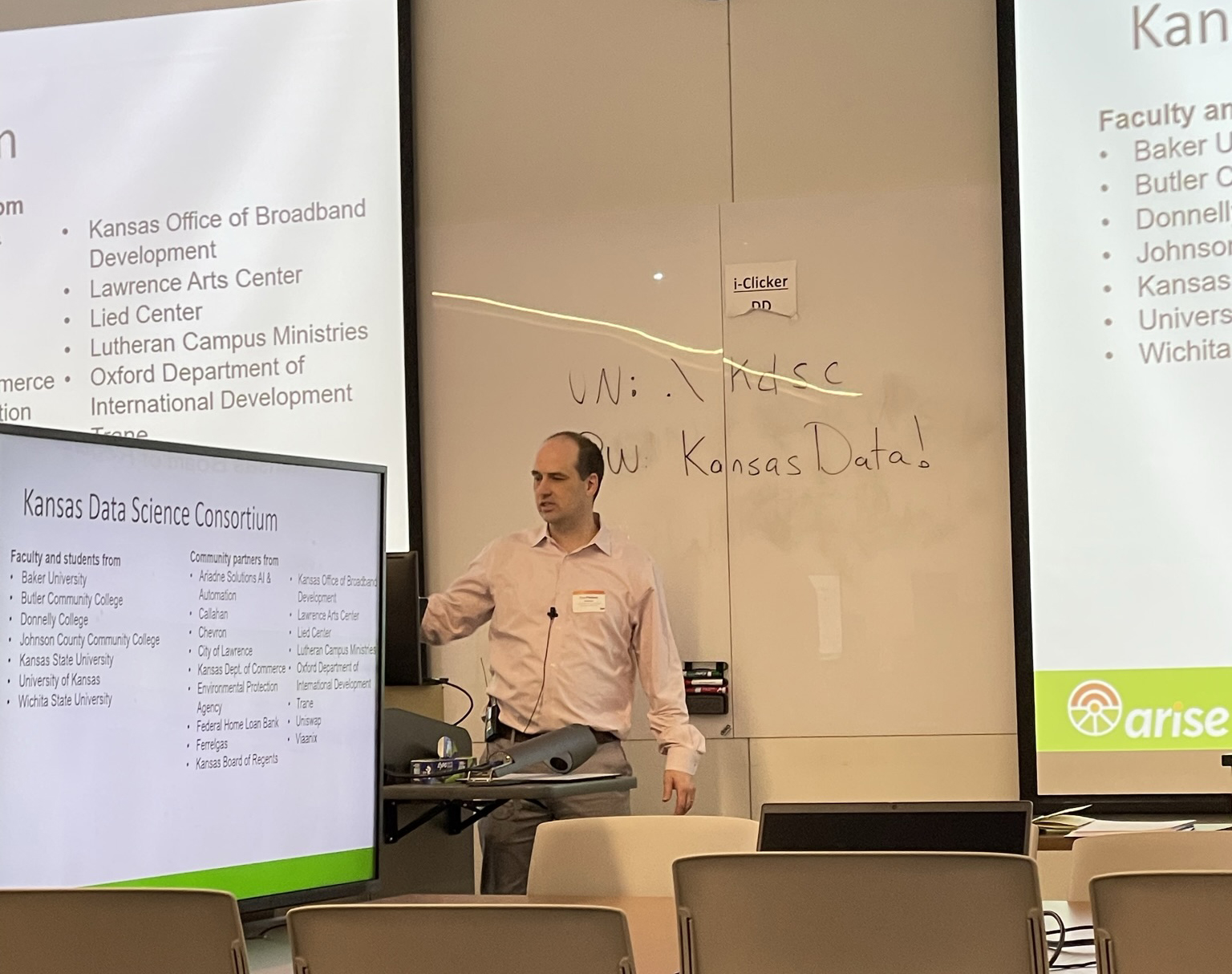
Tim Pleskac, chair and professor of psychology at KU, welcomed everyone to the event. Dr. Pleskac leads the KDSC, but he emphasized in his talk that: “it takes a village.”
That ‘village’ includes:
- Janice Akao, professor of accounting, Butler Community College
- Will Duncan, assistant research professor of data science, KU
- Gryffin Eason, project coordinator, KU
- Safia Malallah, research associate, KSU
- Ana Maradiaga, assistant professor of chemistry, Donnelly College
- Jiji Osiobe, assistant professor in business and economics, Baker University
- Sergio Salinas, assistant professor of electrical engineering and computer science, WSU
- Lior Shamir, professor of computer science, KSU
- Suzanne Smith, associate professor of math, Johnson County Community College
- Judy Smrha, chair and professor of business and economics, Baker University
- Fujian Yan, assistant educator, WSU
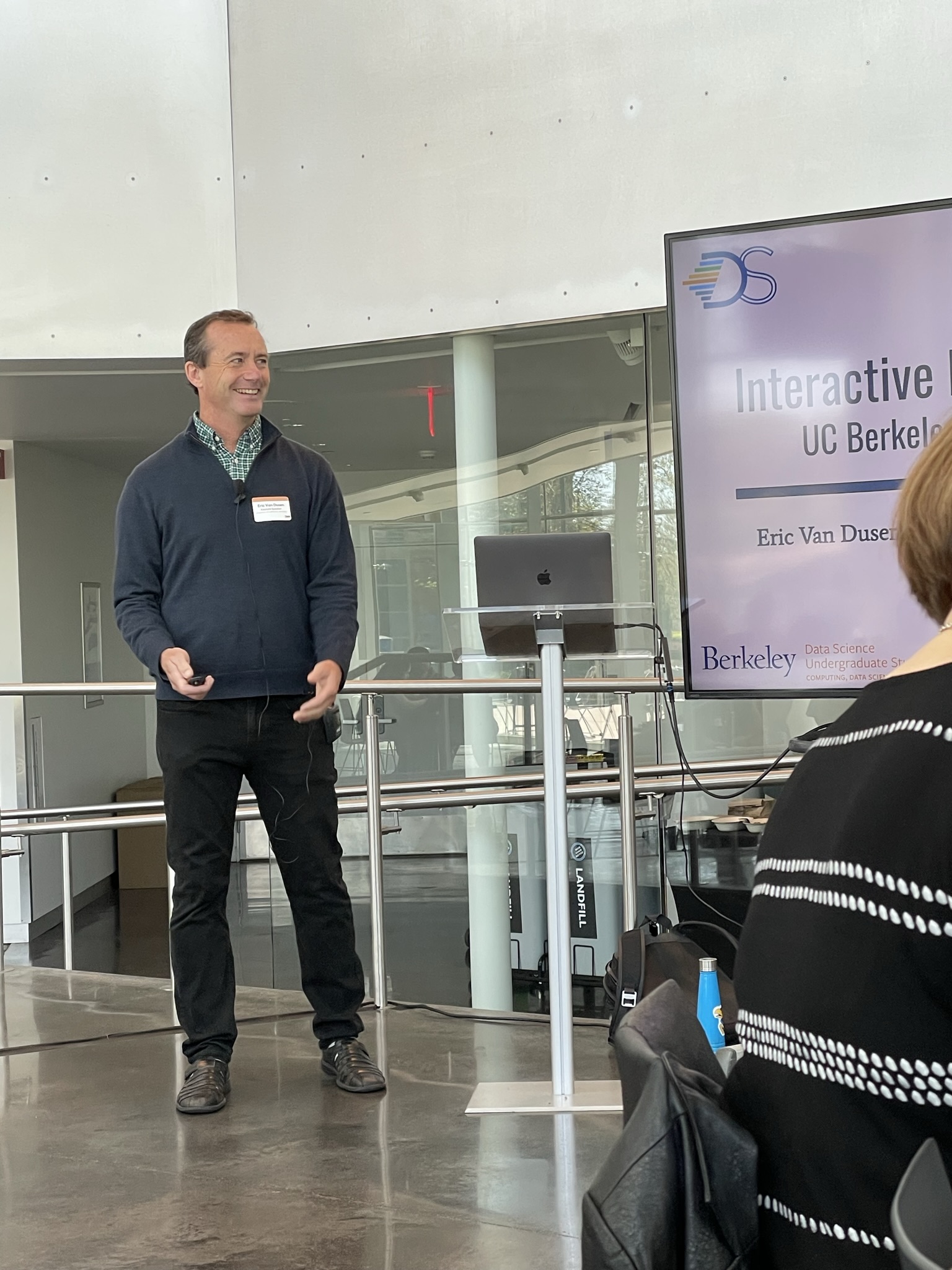
Eric Van Dusen, lecturer for Data Science Undergraduate Studies at the University of California Berkeley, gave the keynote during lunch.
Dr. Dusen discussed how UC Berkeley has created data science modules for all sorts of different classrooms. From engineering to ethnic studies, linguistics to law, this strategy enables students to explore data relevant to them.
Berkeley’s interdisciplinary approach to data science education is wildly popular. 1,500 students enroll in the intro course annually. And 50% of the students are women, a gender balance that far exceeds the male-dominated field of computer science.
Using Berkeley’s program as a model, KDSC is building open-source data science training materials that meet the needs of our state while also expanding workforce capacity in Kansas.
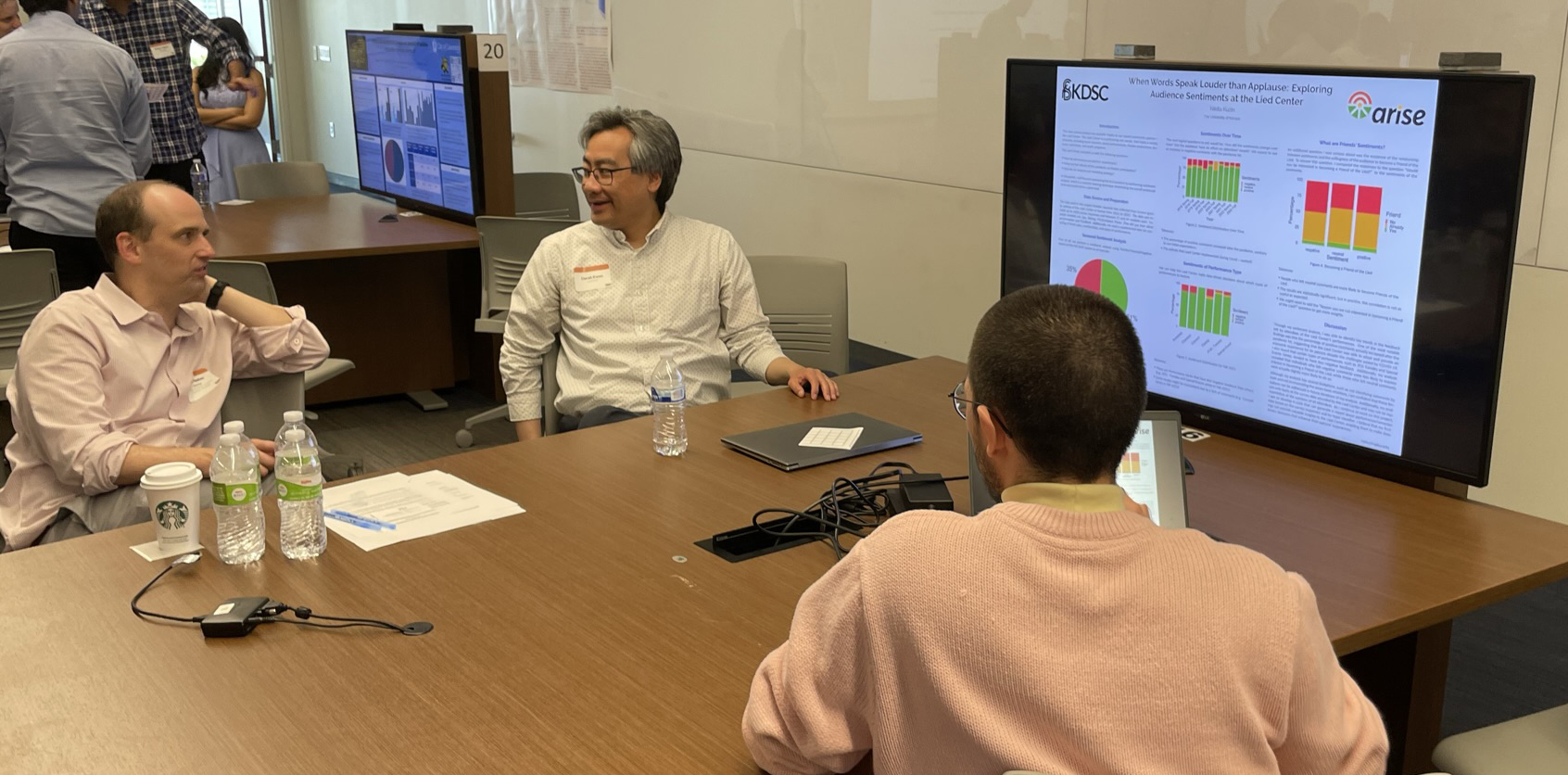
Derek Kwon, executive director of the Lied Center of Kansas (center) provided data for one of the class projects to explore audience sentiments at Lied-sponsored events.
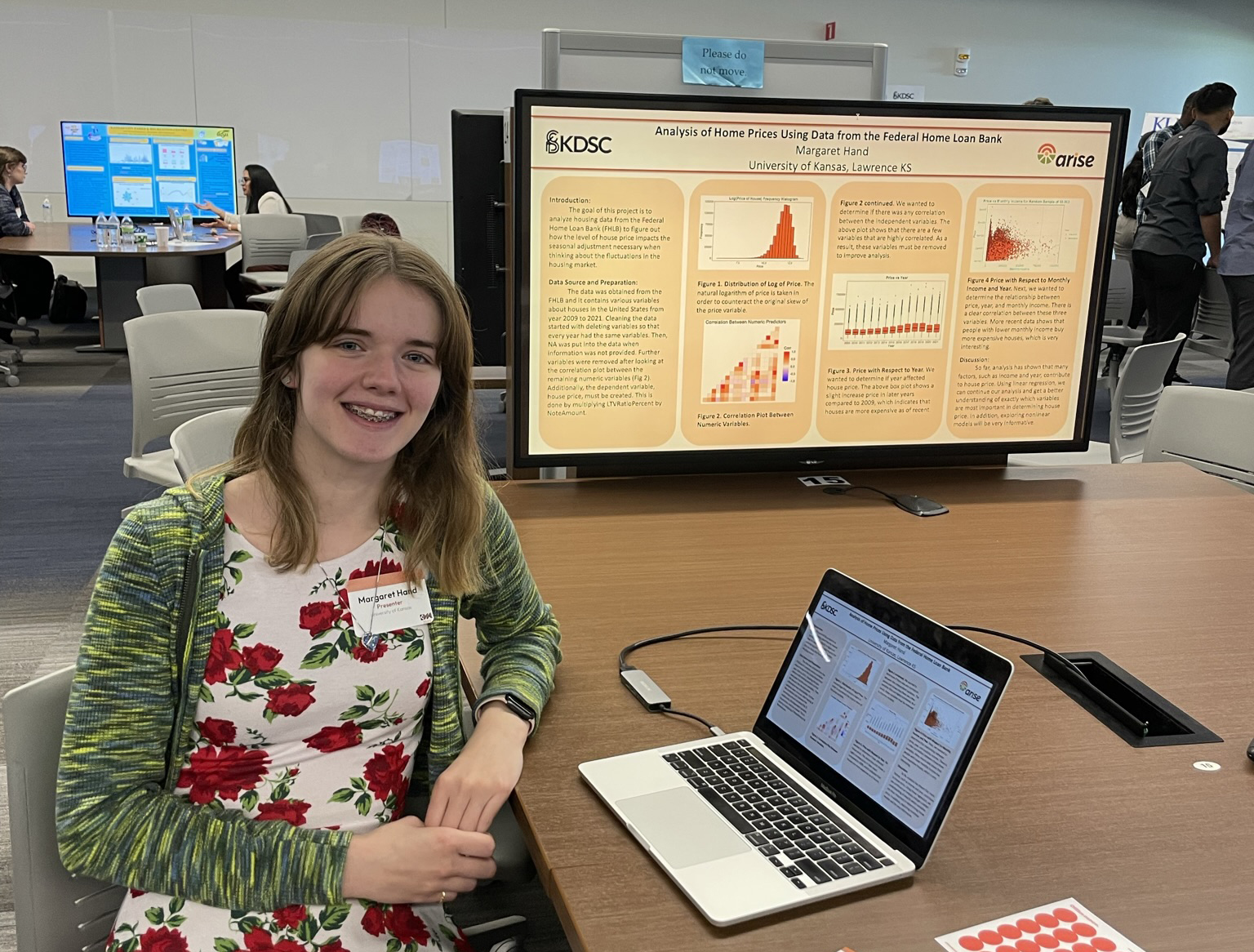
Margaret Hand, KU undergraduate student, presented her project, which analyzed data on home prices. Federal Home Loan Bank of Topeka provided the data for her project.
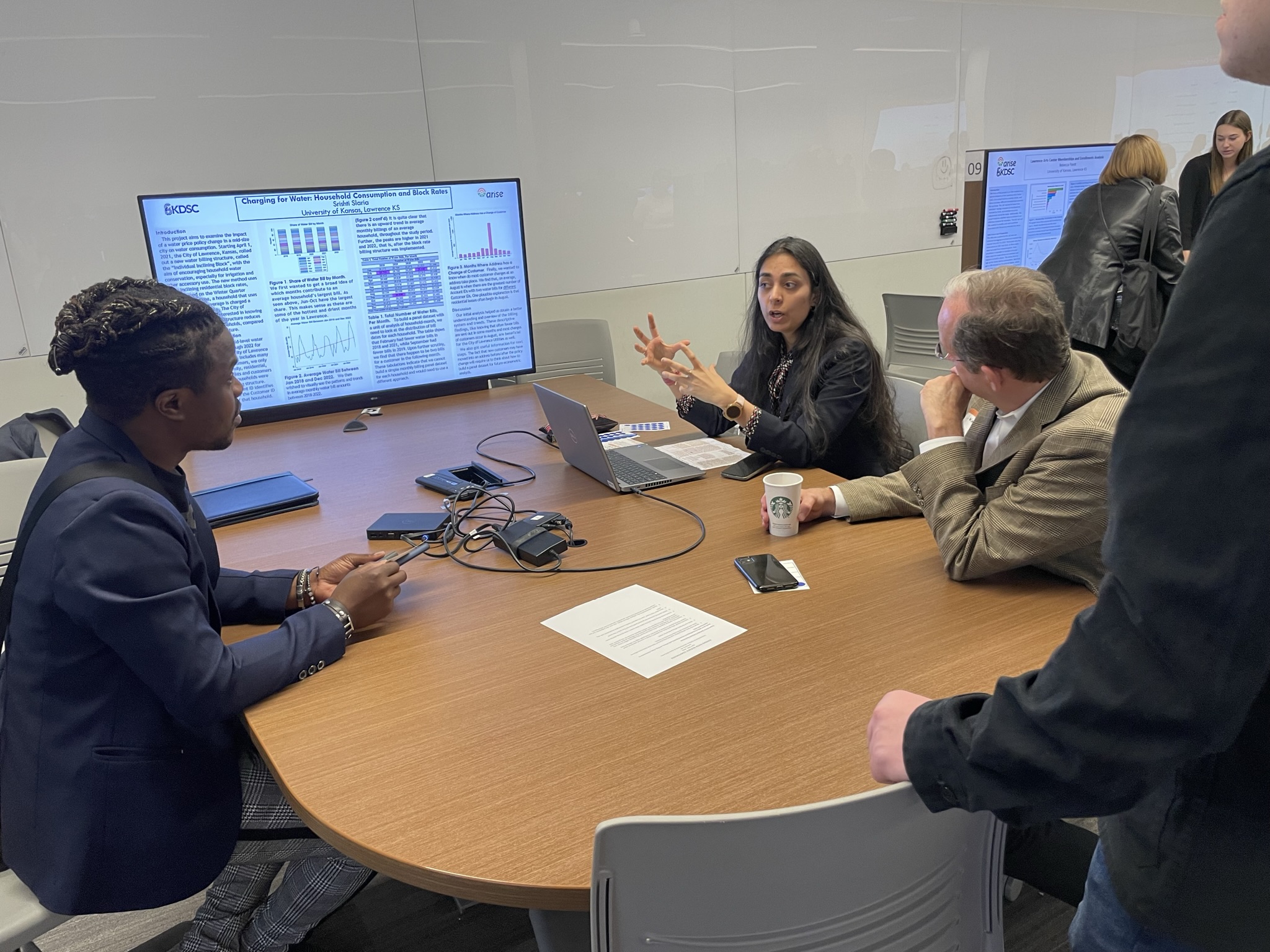
KU student Srishti Slaria presented her project, which analyzed household water consumption data shared by the City of Lawrence.
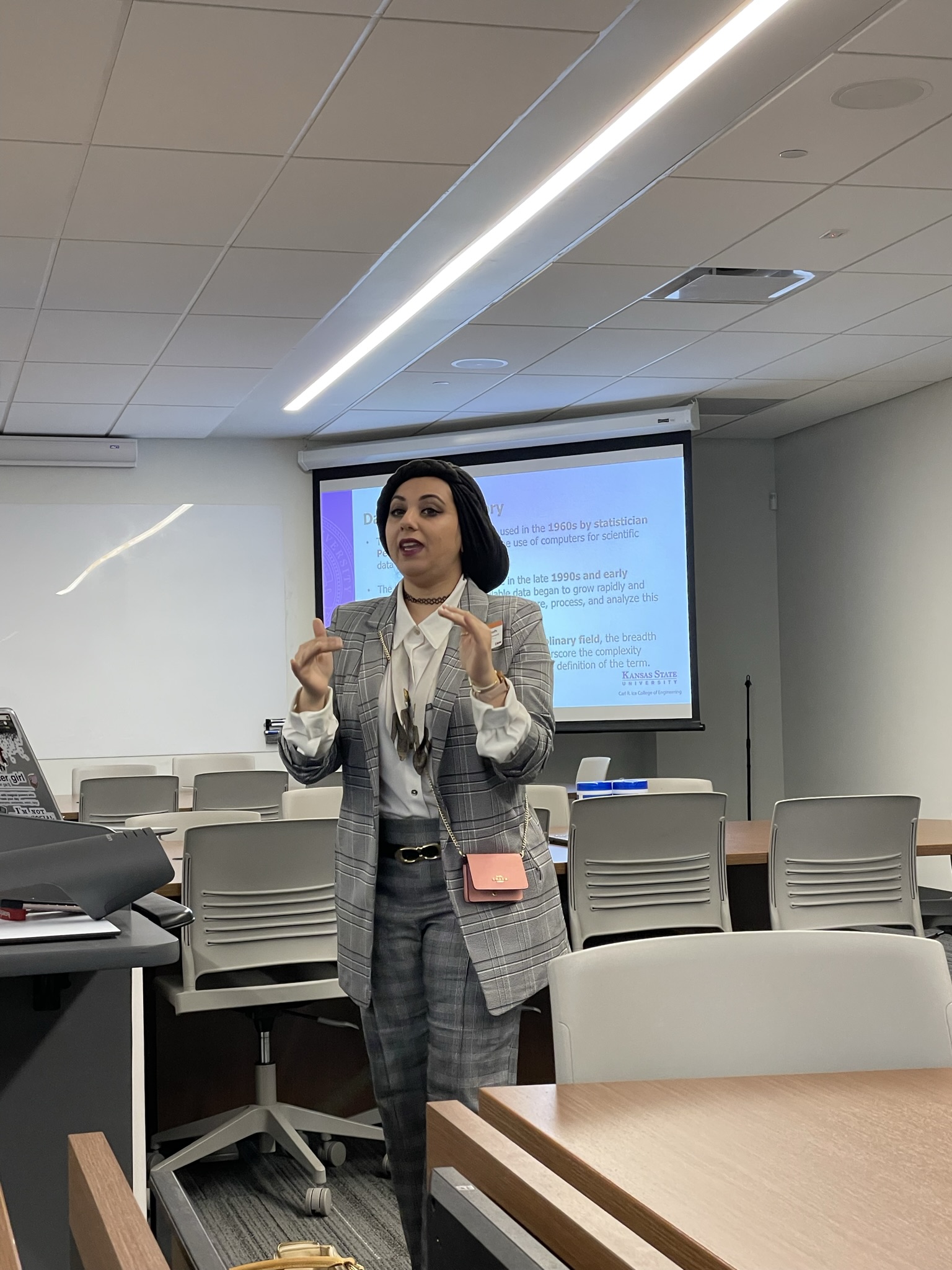
Safia Malallah, research associate at Kansas State University, described how data science is a growing field of education for K-12 students. In her talk, she introduced various methods that teachers can use to educate children and teens about how to analyze and visualize data.
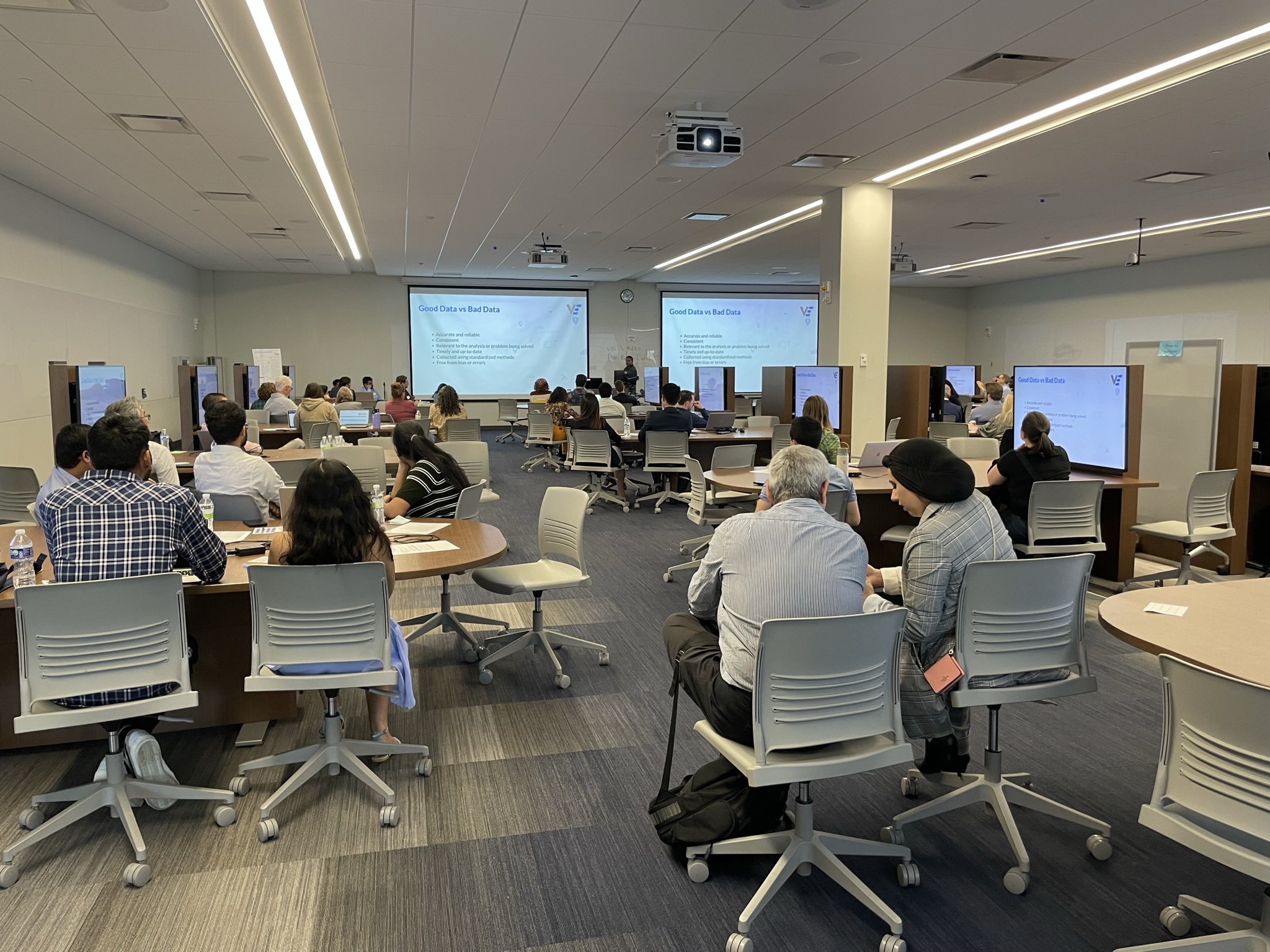
The day-long agenda featured a talk by Jatin Talreja, founder and CEO of Kansas-based tech company Viaanix, which supports interconnections between devices of all types to communicate for enhanced efficiency and profitability. Viaanix also provided data for student projects.
Attendees also had the chance to build their own data science skills at the conference by participating in training sessions on Tableau and Data Carpentry.
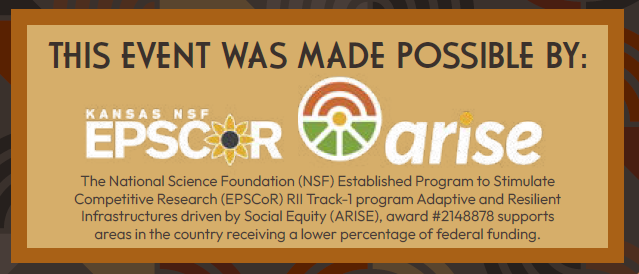
The KDSC is a key educational component of the ARISE project. It is funded by the National Science Foundation Established Program to Stimulate Competitive Research, or NSF EPSCoR, which seeks to build research and education capacity in traditionally underfunded states—like Kansas. This is just the first year of a five–year effort to build data science capabilities in Kansas. Plans are underway to expand the course curriculum to other universities and colleges across the state.
